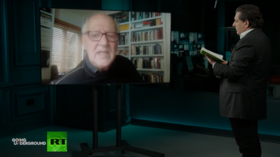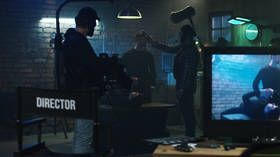Flash Gordon director Mike Hodges: 'I’ve never heard anyone from the Far East complain about Ming'
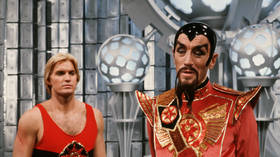
‘Flash Gordon’ director Mike Hodges talks about revisionist criticism of the film, its sexual appeal, rumours of masonic and mystical symbolism, and why a new 4k version is being released after 40 years.
I’m on the phone telling an 88-year-old filmmaker that arguably his best-known movie made me vomit. Mike Hodges is taken aback before chuckling when he realises that I was five years old at the time.
“I’m glad you’ve recovered,” says Hodges. “I hope it wasn’t a comment on the film.”
More a case of a father overindulging his sweet-toothed son. Flash Gordon was the first film I ever saw at the cinema and, like a first love, my affection for it has long lingered, which makes speaking to Hodges, its director, quite special. They don’t make films like Flash Gordon anymore. It’s debatable whether they’ve ever made films like Flash Gordon, except for that one time when they made Flash Gordon.
This fabulously camp sci-fi comic book adaptation turns 40 this year, but unlike most people who reach that age, Flash looks as vibrant as ever, particularly in a new 4k version hitting cinemas and home entertainment platforms in the coming days.
The colours are still turned up to 11, the Queen rock opera soundtrack is still pitch-perfect, and its story of an NFL quarterback, travel agent and rogue scientist attempting to save Earth from a galactic despot still as ludicrously engrossing (or engrossingly ludicrous) as ever.
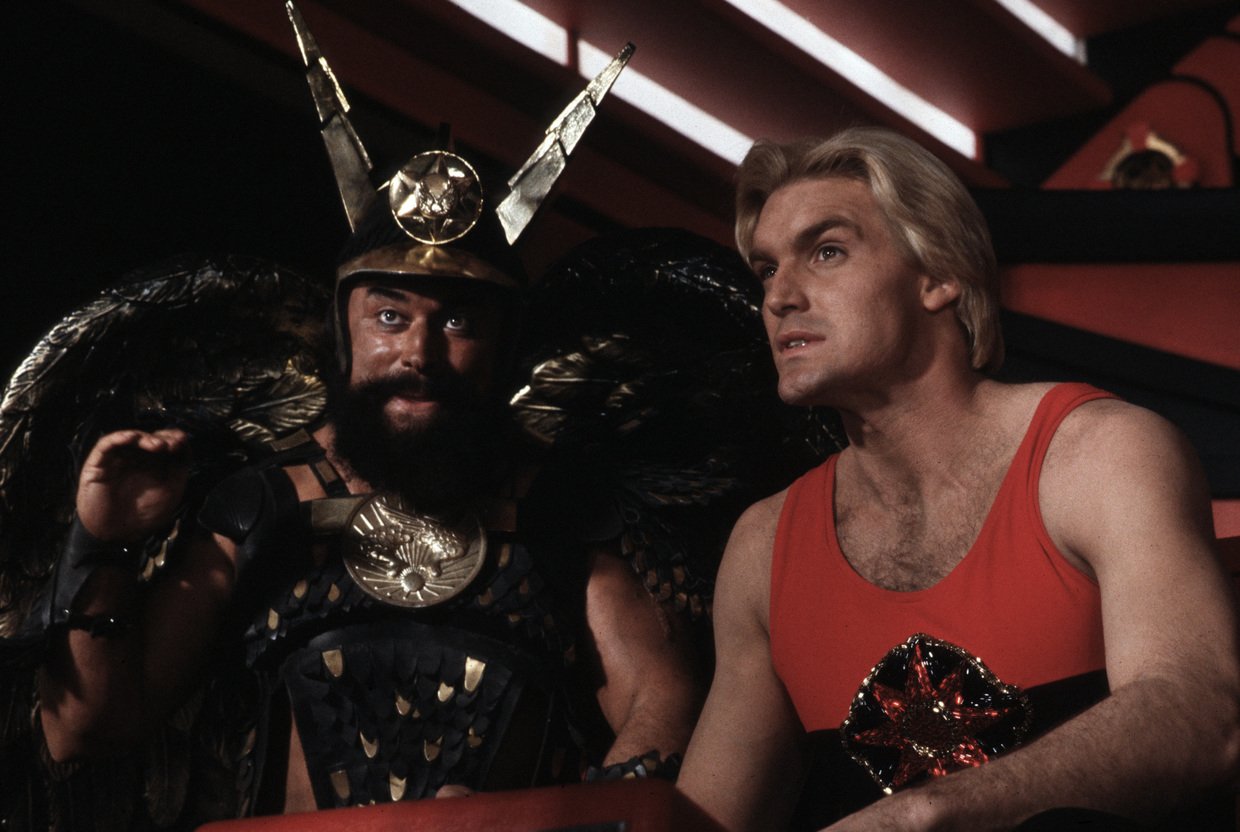
Then, of course, there’s the immaculate casting. The innocent college sport star qualities of Sam Jones as Gordon, Max von Sydow’s sinister Ming the Merciless, the dangerously seductive Ornella Muti as Princess Aura, and future Bond Timothy Dalton as the Errol Flynn-like Prince Barin. And need I mention booming Brian Blessed’s flying Prince Vultan and his immortal line: “Gordon’s alive?!”
Utterly nuts, it’s almost impossible to tell what’s played for laughs and what’s not – which was even the case for the people who made it.
“I think [producer] Dino De Laurentiis really believed in Flash Gordon,” says Hodges. “But it was ludicrous to me. When the original comic strip was made in the ‘30s, we hadn’t got anywhere near the Moon but when I made the film, we’d been to the Moon several times and here we had [aforementioned rogue scientist] Hans Zarkoff building a rocket ship in his greenhouse or conservatory or whatever. It never occurred to me that it could be taken seriously so I was always popping in jokes.
“The crew would laugh during rushes and Dino couldn’t understand why. He took it seriously and on reflection, I’m glad he did because you can only take the comedic side so far and without Dino I would have gone too far.”
Hodges is speaking to me from his rural home in the picturesque English county of Dorset, where he’s enjoying a form of semi-retirement at the age of 88, converting his script ideas that were never filmed into books and keeping well “out of the loop” when it comes to Hollywood.
Hodges also gave us the Michael Caine masterpiece that is Get Carter, along with other excellent films like Pulp, The Terminal Man and Croupier. It’s not a CV that screams glowing primary colours, space battles and hotpants, but by going back to Alex Raymond’s original 1930s comic strips, Hodges made something so distinct that it would stand the test of time.
While the film gained my five-year-old seal of approval and did ‘good box office’ when released in 1980, reviews were mixed. These reviews, however, have been confined to history by a ‘cult following’ that means the film’s remastered re-release at the end of this month is rather a big deal.
It has some famous fans. It was crucial to the plot of Seth McFarlane’s delightfully crass Mark Wahlberg-starring comedy Ted (featuring Sam Jones). It’s also been hailed as the inspiration for Thor: Ragnarok (aka the best Marvel film) by its director Taika Waititi, who’s supposed to be taking on an animated version of Flash Gordon. Hodges has his theories on why his Flash has such staying power.
“It’s quite difficult to work out why films last,” he says. “I think that with Flash Gordon, as you say, it was the first film you saw, even though you threw up, but I think that when you become an adult, you then show it to your own children and you enjoy it in a totally different way. You enjoy it in a much more sensual way. A lot of the love of the film has a sexual sort of undertone that children wouldn’t notice. When I first was offered the film, I was talking to American friends of my own age and I was quite amazed to find that quite a lot of their sexual fantasies had come from the strip cartoon.”
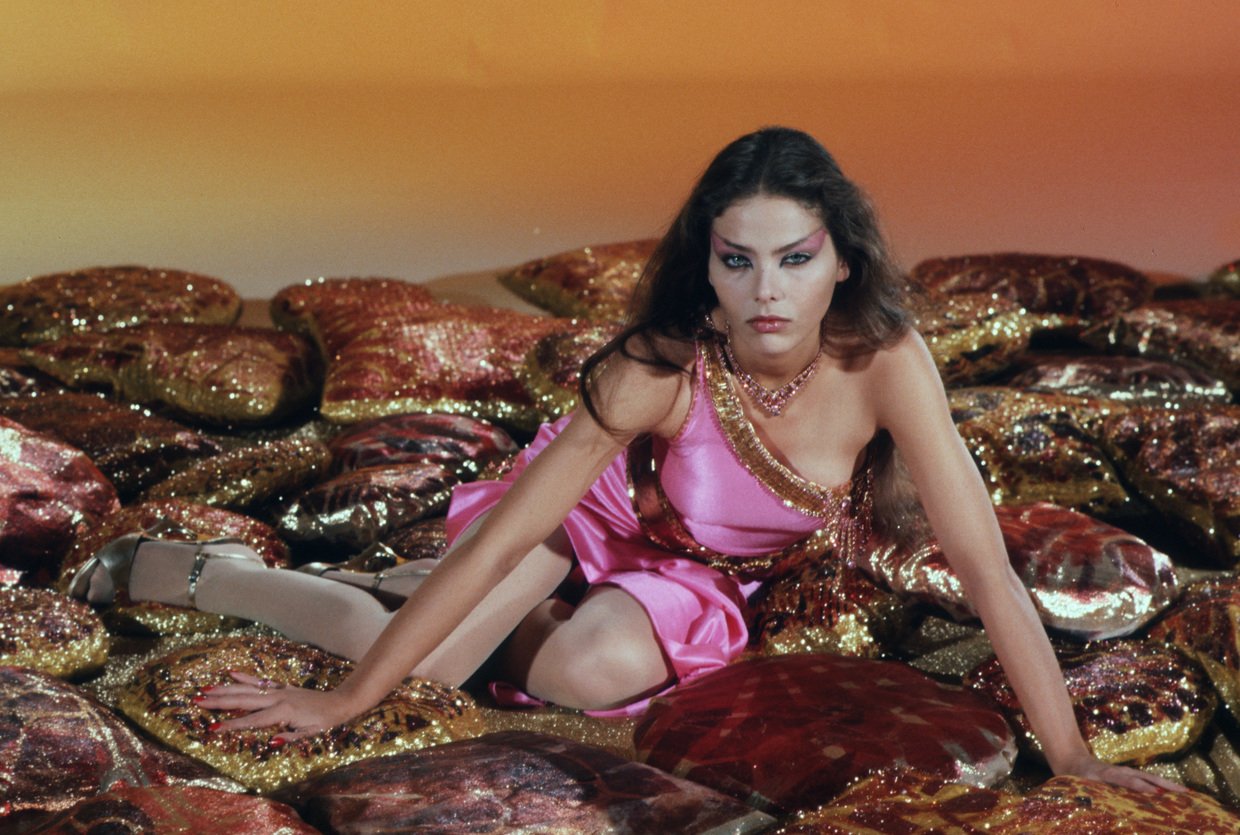
Despite its continued popularity, according to some people, it hasn’t aged all that well. These are the days of revisionist critique. Old films and television programs are eyed through a modern lens and checked for elements that are unacceptable by today’s standards. Some works merely suffer a fairly impotent online battering, as with the ongoing and tedious retrospective review ofFriends.
Other films and shows, though, have suffered more serious fates; most notably, Gone With the Wind. Long seen as one of the greatest films of all time, it was temporarily removed from HBO Max due to its undoubtedly warped depiction of slaves in America’s Deep South (basically that they didn’t really fancy emancipation).
Its suspension from the channel has intensified the debate on how and if old films with outdated elements should be presented, leading to the usual extremes of overly-dramatic reactionists talking about history being erased on one side and, on the other, the irrational call for anything not in line with certain modern sensibilities to be censored.
Flash Gordon has been part of the debate. More specifically, its portrayal of Ming the Merciless, the aforementioned galactic despot. Some see Ming as an outdated piece of racial stereotyping, a throwback to Raymond’s comics, which were born at the height of ‘Yellow Peril’ paranoia: the propaganda-fuelled idea that South-East Asian countries were a threat to Western values. Ming is played by a Swede in Von Sydow, but his styling is ‘Eastern.’
Also on rt.com 'We should be allowed to say what we want': Idris Elba blasts censorship of movies & TV over offensive materialWith this in mind, if he were making the film today, would Hodges do anything differently?
“I honestly don’t think so,” he says. “It never would have occurred to me. It’s like a society for the protection of birds complaining about Brian Blessed’s performance as a hawk. I find that preposterous to be honest with you. Ming represents all the dictators that we witness in life, certainly in my lifetime. He’s the Emperor of Mongo, that’s all I know.
“[The larger debate] is all tied up with so much, like pulling the statues down. I really don’t think that I can indulge myself in that in terms of Flash Gordon. I mean, Flash Gordon is just too light to be bothering with. I can see possibly with Gone With The Wind but it seems to me, if it illustrates what people used to feel and what was acceptable, then you realise just how far we’ve come. I’ve never heard anyone from the Far East complain about Ming. To take Ming seriously is, in my opinion, absolutely preposterous.”
On the subject of preposterousness, I also ask Hodges about a 2016 blog post in which Flash Gordon is accused of containing “symbolism indoctrinating people into a world of mysticism” and broadcasting a hidden message via “Masonic/Illuminati types of symbolism.”
I’d sent Hodges a link to the post a few weeks earlier, hoping that he’d a) be amused or b) reveal to the world that yes, Flash Gordon has spent the last 40 years brainwashing us on behalf of the Freemasons through the medium of Shakespearean actors wearing skimpy outfits. I remind him about it and the answer is most definitely ‘a.’
“Oh yes, the Freemasonry!” he says with a chortle. “When I worked on [old ITV program] World In Action I did a documentary on Freemasonry but it was never shown. Some of the board of directors were Freemasons and they didn’t want it shown so it was pulled, which rather illustrated what was going on. But there is nothing in Flash Gordon. You’d have to ask Alex Raymond about that!”
With or without help from secret organisations, comic book adaptations these days are usually turned into mega-dollar franchises, churning out blockbuster after blockbuster like elaborate sci-fi soaps. Around the time of Hodges’ Flash Gordon, only the Christopher Reeves Superman films came close.
Which begs one final question: if Hodges’ film was made today, would it have been given the same treatment? Would we be waiting on Flash Gordon 3, part of a greater Mongo Cinematic Universe?
“I don’t think so,” he says. “I think it’s a one-off. I honestly think that Flash is quite unique. I don’t take particular credit for it, but I think it is a unique film. If anybody asked me to make a sequel, I’d say it’s absolutely out of the question for me.”
Five-year-old me couldn’t agree more.
Flash Gordon has been restored in 4k – in cinemas from July 31 and available to own from August 10.
Think your friends would be interested? Share this story!
The statements, views and opinions expressed in this column are solely those of the author and do not necessarily represent those of RT.

